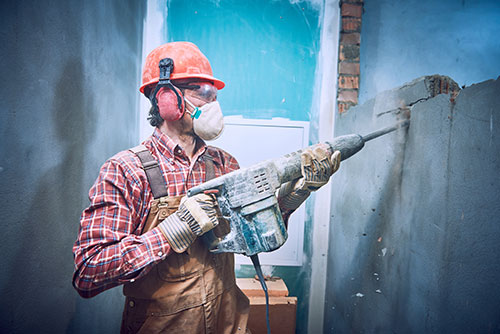MANUAL HANDLING COURSE
Manual Handling Course / Manual Handling Training
What is Manual Handling?
The Manual Handling Operations Regulations 1992 define manual handling as “any transporting or supporting of a load (including the lifting, lowering, pushing, pulling, carrying or moving thereof) by hand or bodily force. It can have serious implications for the Employer if Employees aren’t properly trained.
Who Needs Manual Handling Training?
Not only is it best practice to train staff in manual handling but to comply with Manual Handling Regulations, employees that are involved in any manual activity in the workplace must have the appropriate manual handling training.
How Often do I Need to do Manual Handling Training?
On successful completion of the course, participants will be awarded a manual handling certificate valid for 3 years.
What Does the Course Cover?
The aim of the course is to provide the knowledge and skills to carry out manual handling tasks correctly and safely.
Course Content Covers:
- The law and legislation
- Human anatomy
- Good lifting techniques
- Procedures for dealing with unfamiliar loads
- Use of PPE
- Good housekeeping
- Student practical assessment
Objectives of the course
On completion of this course participants will:
- Understand the importance of correct Manual Handling
- Understand the correct methods of Manual Handling
- Understand their responsibility in carrying out safe Manual Handling practices
- Reinforce proper lifting techniques
Why is Dealing with Manual Handling Important?
According to the Health and Safety Authority (HSA) over a third of all workplace injuries are as a result of incorrect manual handling procedures. This can occur anywhere in the workplace and heavy manual labour, awkward postures, repetitive movements of arms, legs and back or a previous/existing injury can increase the risk.
Without the appropriate training, poor manual handling can have serious consequences for the employee:
- Short term/superficial injuries such as cuts, sprains, bruises, fractures and muscle strain
- Long term injuries such as damage to the musculoskeletal system – muscles, tendons, joints, bones, nerves and ligaments
- Mental health issues – long term injuries can impact mentally not just physically, due to the stress and anxiety caused by the long-term physical issues
- Poorer quality of work and less efficient output – possibility of losing job.
Manual Handling Injuries Can Also Have Implications for The Employer:
- Poorer quality of work and less efficient output
- More frequent employee absences
- Sick leave costs
- Organisational issues – lack of qualified staff
- Money spent on training new employees
- Accidents at work costs
- Loss of time resulting in loss of profits.



